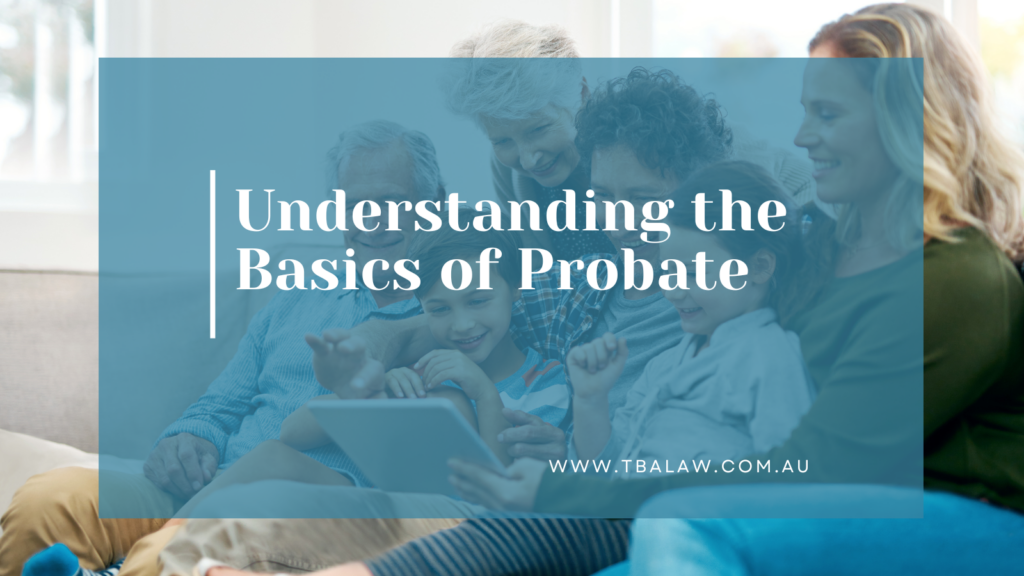What is Probate?
by Jacqui Brauman
Probate is a term that often brings confusion and misunderstanding. Many people mistake it for a tax or an unnecessary burden that comes with the passing of a loved one. However, probate is neither a tax nor compulsory in every situation.
In this blog post, we will debunk common misconceptions and shed light on what probate really is, its purposes, and the process involved.

What is Probate?
Probate is the legal process that takes place after someone passes away, primarily involving the validation of their will and granting authority to the executor to fulfill their duties. It is important to note that probate requirements can vary from state to state. The executor must make an application to the Supreme Court of the state where the person passed away, requesting a validation of the will and authorization to perform their responsibilities.
Why is Probate Required?
Probate becomes necessary in situations where specific assets within the deceased’s estate need official recognition and transfer. These assets might include real estate, significant cash holdings, substantial amounts in bank accounts, funds from superannuation being paid to the estate, or even water shares. Probate provides a legal endorsement ensuring that the assets are handled appropriately and in accordance with the deceased person’s wishes.
The Probate Process:
Once the executor submits the application for probate, they await the court’s decision. In the past, a physical grant document was issued, but now it is usually sent as a PDF via email. Contrary to popular belief, probate does not involve any death taxes in Australia. The fees associated with probate vary according to the state and are typically calculated on a sliding scale. For example, in Victoria, fees range from $60 to $600, while New South Wales has higher costs. It is essential to understand that these fees are not taxes but court fees.
Importance of Probate
While probate may not be mandatory in all cases, obtaining it adds a formal legal acknowledgment and legitimacy to the estate administration process. Additionally, probate sets timeframes within which certain actions must occur. It also allows for creditor applications if the estate is insolvent or no one steps forward to administer it. In some cases, variations in the will or the need for someone other than the executor to apply may result in a grant of letters of administration, which carries the same legal effect as probate.
Probate is often shrouded in misconception, leading to unnecessary anxiety and confusion among individuals going through the estate administration process. Understanding the true nature of probate, which is the validation of the will and granting authority to the executor, can help demystify it. While its requirements and fees may vary, probate serves the purpose of safeguarding assets and ensuring that the deceased’s wishes are carried out appropriately. By seeking professional guidance in estate planning, the need for probate can be minimized, alleviating potential burdens for the executor.
Reach out to our team if you need help: admin@tbalaw.com.au or call 1300 043 103.






Leave A Comment